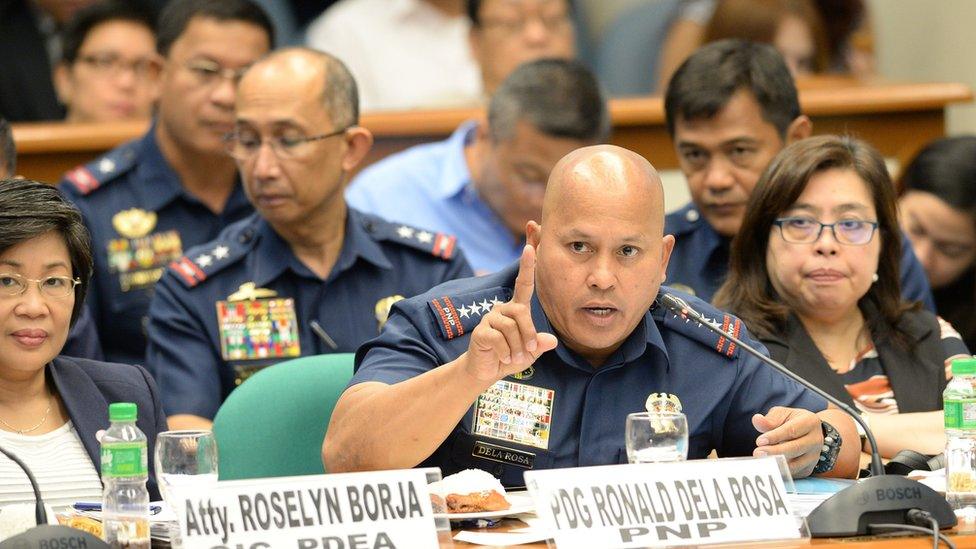Philippines bomb: Davao attack blamed on Abu Sayyaf
- Published
Philippine President Rodrigo Duterte has announced extra powers for the military, reports Catriona Renton
The Abu Sayyaf militant group was responsible for a bomb attack in the home city of Philippine President Rodrigo Duterte which killed at least 14 people, the government has said.
Dozens were wounded in the blast at a market in the southern city of Davao.
Mr Duterte - who was in Davao at the time of the blast but was not near the market - has declared a "state of lawlessness" following the explosion.
This allows troops to be based in cities to assist the police.
National Defence Secretary Delfin Lorenzana said that Abu Sayyaf wanted to retaliate after suffering heavy casualties on its stronghold of Jolo island about 900km (560 miles) from Davao.
"We have predicted this - and warned our troops accordingly," Mr Lorenzana said in a statement.
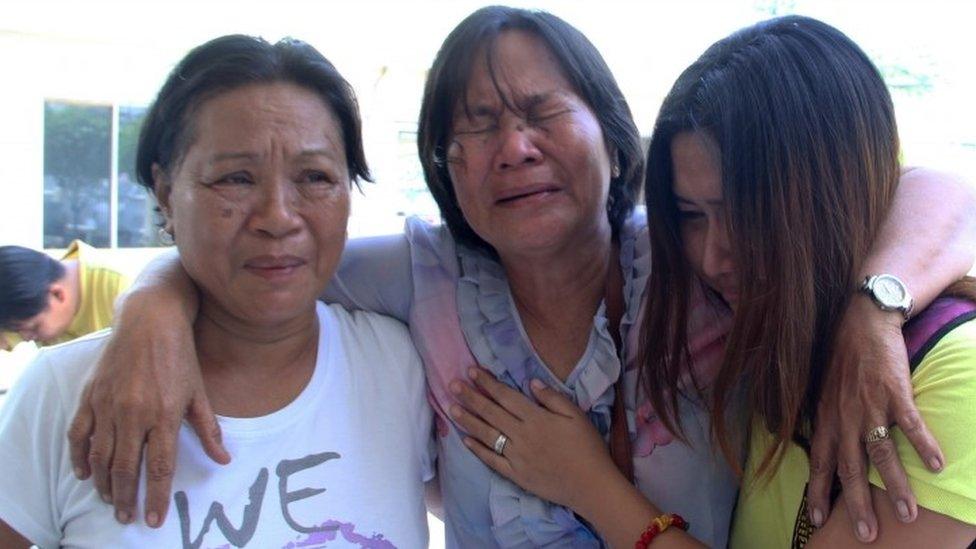
The Philippines has been beset by drugs and separatist violence
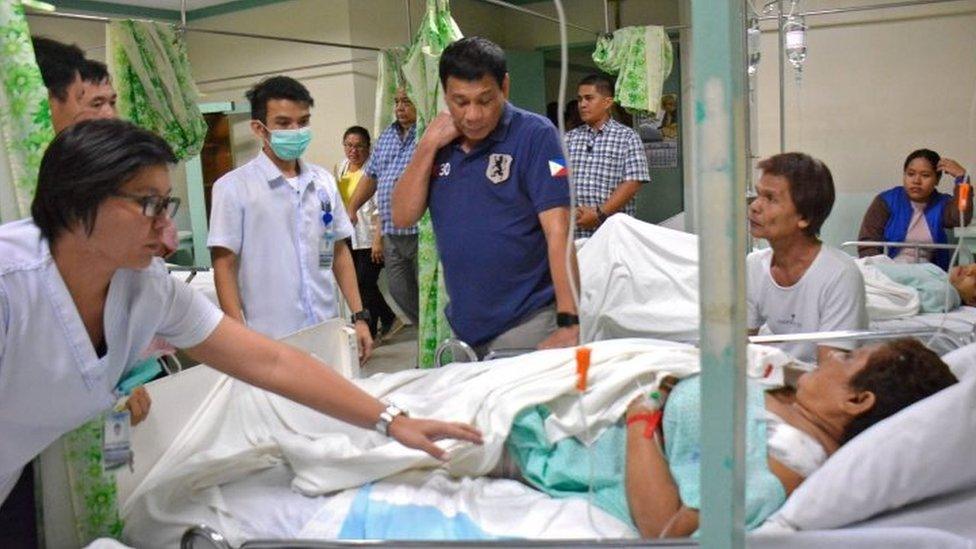
President Rodrigo Duterte (centre, in blue) has visited victims of the blast
A presidential spokesman said investigators had found shrapnel from a mortar-based improvised explosive device (IED) at the scene.
At least 60 people were injured.
The explosion took place in an area frequently visited by Mr Duterte.
Broken glass and plastic chairs were scattered at the scene.
"The force just hurled me. I practically flew in the air," witness Adrian Abilanosa told the AFP news agency.
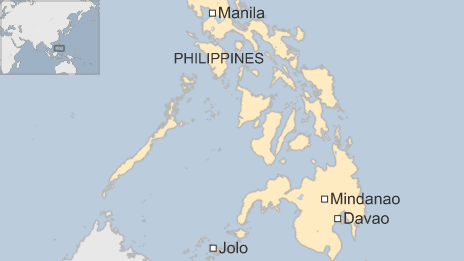
The president said the Philippines was going through "extraordinary times" which was why he had decided to allow the security forces to conduct searches previously done solely by the police.
In the aftermath of the explosion there were conflicting claims as to who may have carried it out.
Mindanao police director Manuel Gaerlan was reported by the the Philippine Daily Inquirer, external as putting forward a theory that "disgruntled vendors" upset over the awarding of stalls in the market were responsible.
The government for their part initially said they were considering the possibility that drug syndicates were behind the blast before concluding that Abu Sayyaf were to blame.
A spokesman for the militant group was reported to have claimed responsibility soon after the attack. But the Inquirer quoted a senior Abu Sayyaf leader as saying it was in fact carried out by "an allied group".
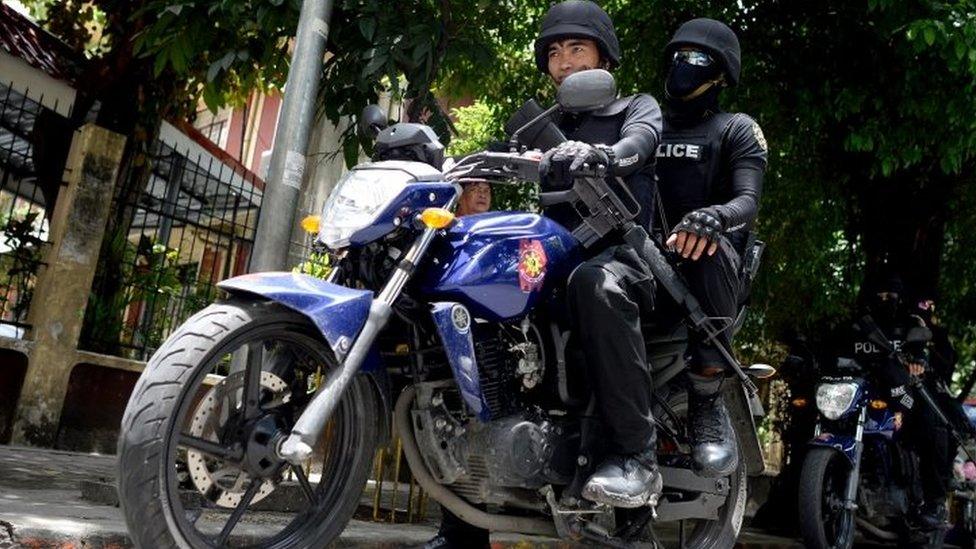
Special Weapons and Tactics (Swat) personnel are now patrolling the streets of Manila
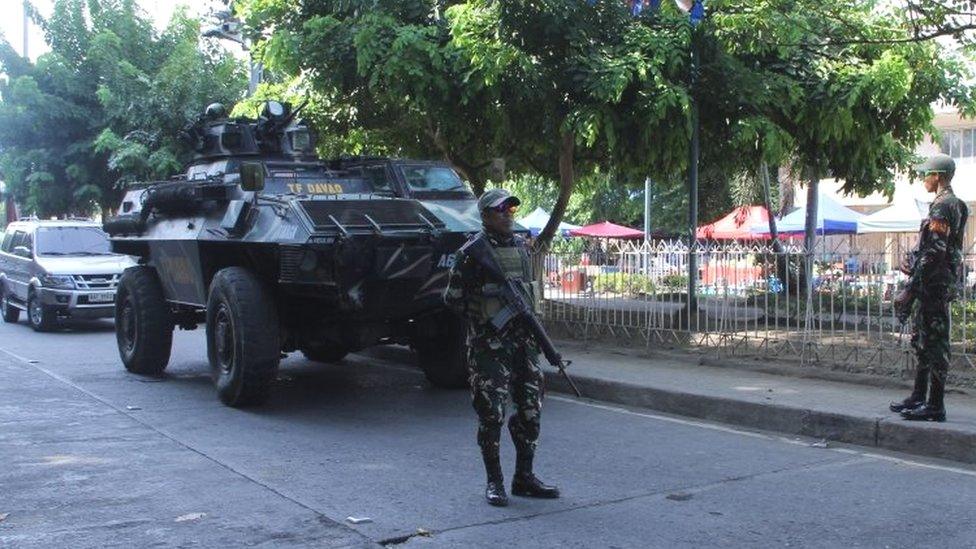
Security has been tightened in and around the scene of the attack in Davao
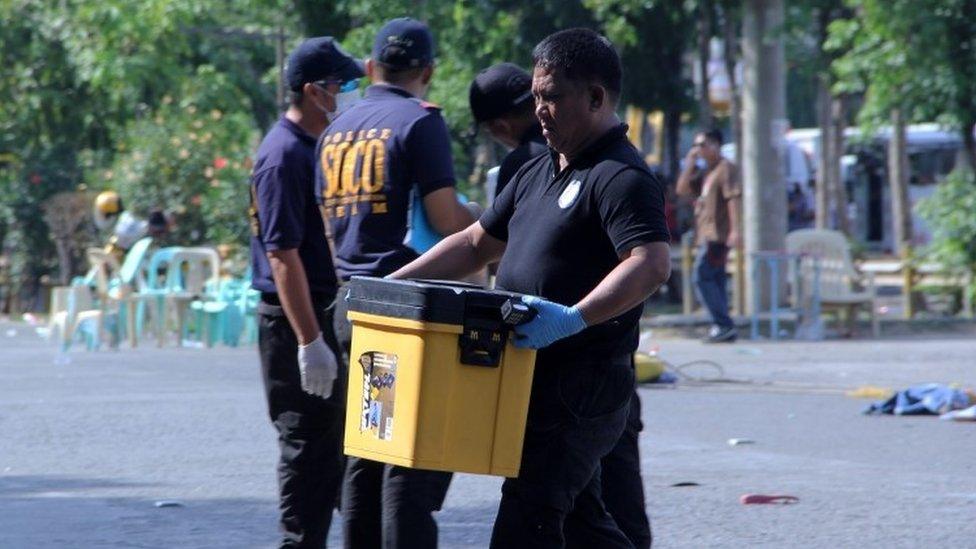
Police have gathered forensic evidence at the scene of the explosion
The region has been under a heightened security alert in recent weeks because of a military offensive against Abu Sayyaf.
On Monday at least 12 soldiers were killed in clashes with militants in what was the deadliest day for Philippine troops since President Duterte was elected in May.
Davao is the biggest city in the southern Philippines and has a population of about two million people. It is about 1,500km from the capital Manila.
- Published3 September 2016
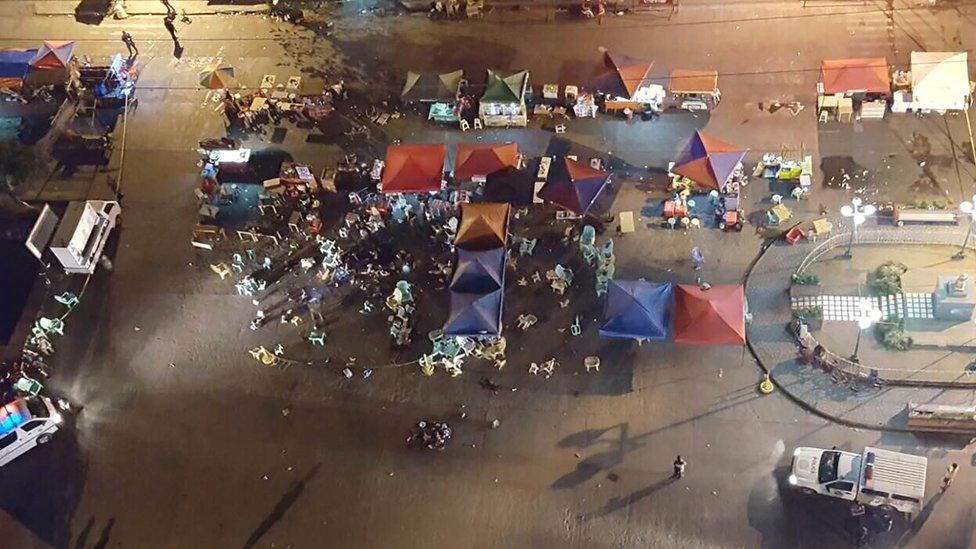
- Published29 August 2016
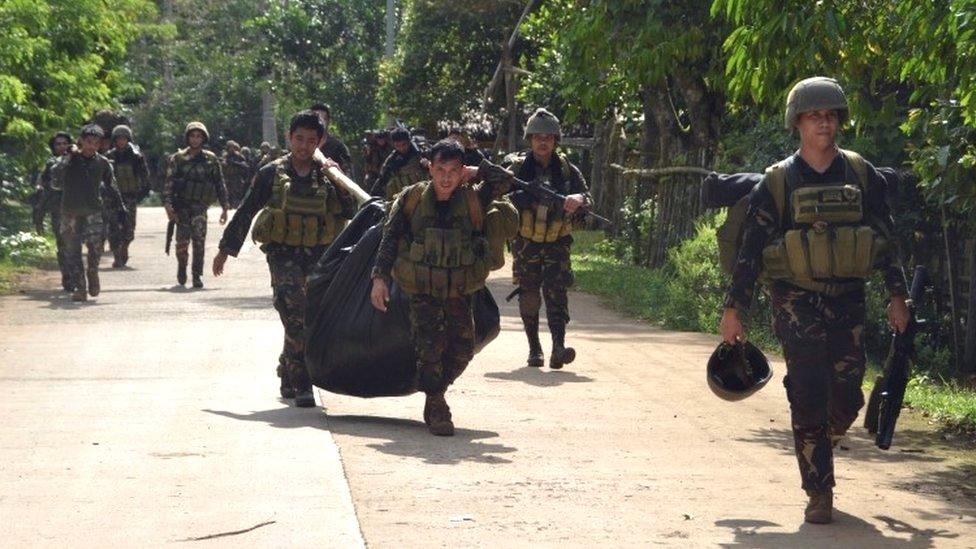
- Published30 June 2016
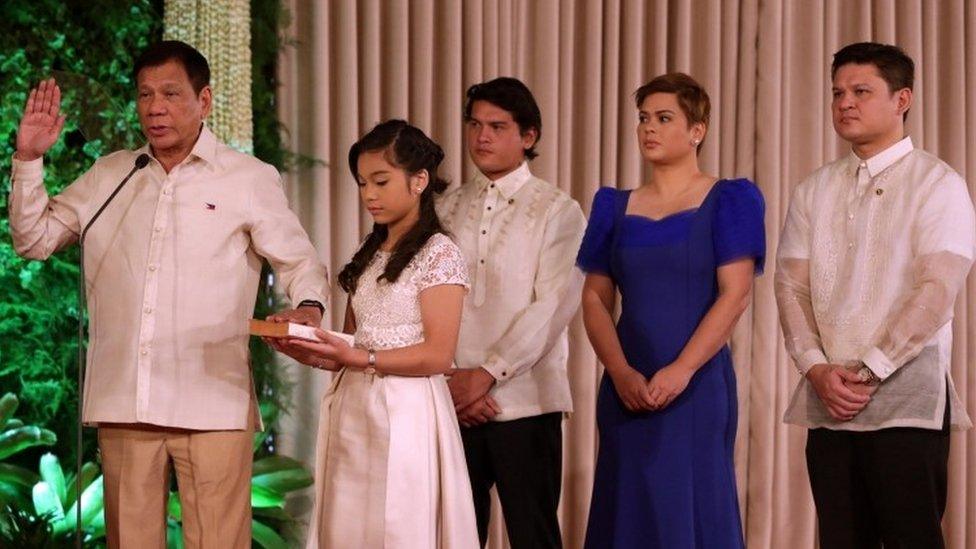
- Published23 August 2016
